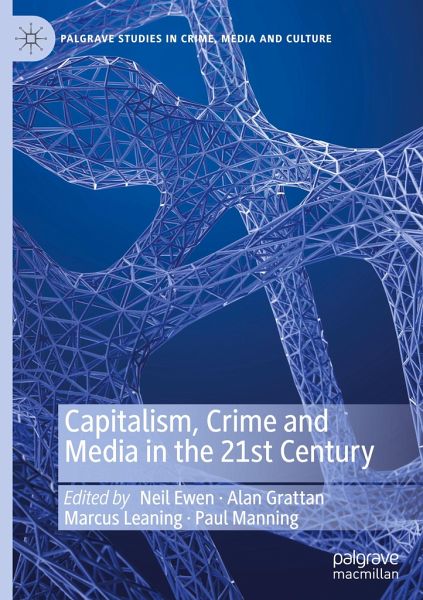
Capitalism, Crime and Media in the 21st Century

PAYBACK Punkte
49 °P sammeln!
This edited collection from leading scholars in the fields of media, communications, cultural studies and a number of aligned areas looks to the intersection of capitalism, crime and the media. The text is founded on the principles of cultural criminology - that how we determine and understand crime lies in the social world and that the determination of crime and its mediation in popular culture have a political basis. The book consists of eleven chapters and is divided into three sections. Section one considers the intersection of crime and capitalism in a range of contemporary cultural texts...
This edited collection from leading scholars in the fields of media, communications, cultural studies and a number of aligned areas looks to the intersection of capitalism, crime and the media. The text is founded on the principles of cultural criminology - that how we determine and understand crime lies in the social world and that the determination of crime and its mediation in popular culture have a political basis. The book consists of eleven chapters and is divided into three sections. Section one considers the intersection of crime and capitalism in a range of contemporary cultural texts. Section two examines how various power systems influence the operation of the media in its role of reporting crime and holding the powerful to account. Section three considers how texts in a variety of formats are used to conduct politics, communicate politics and enact political decision making.














